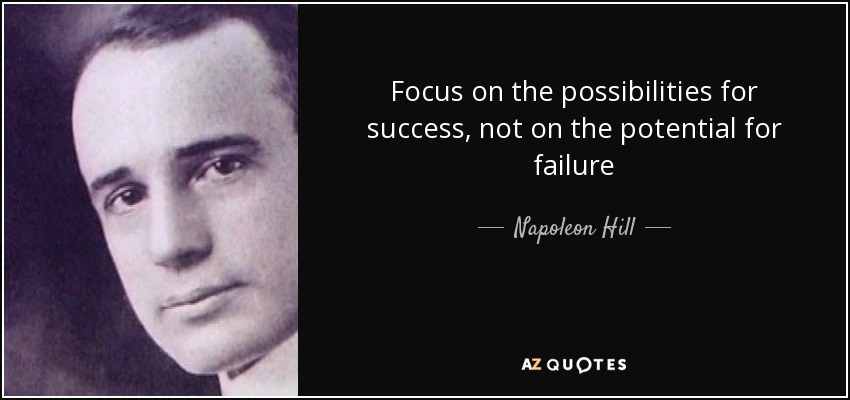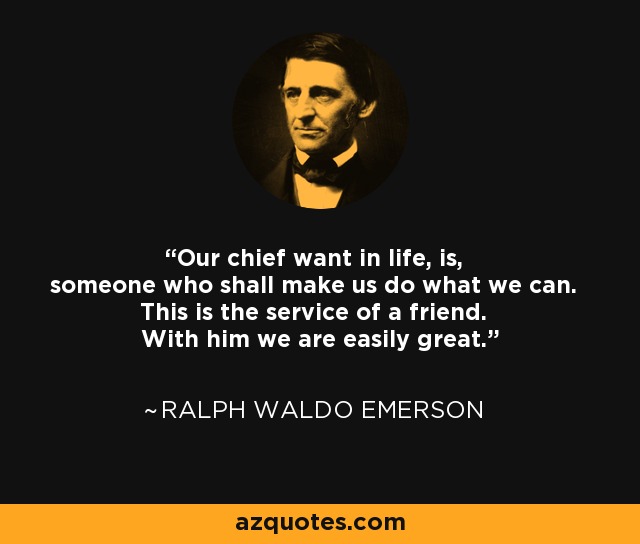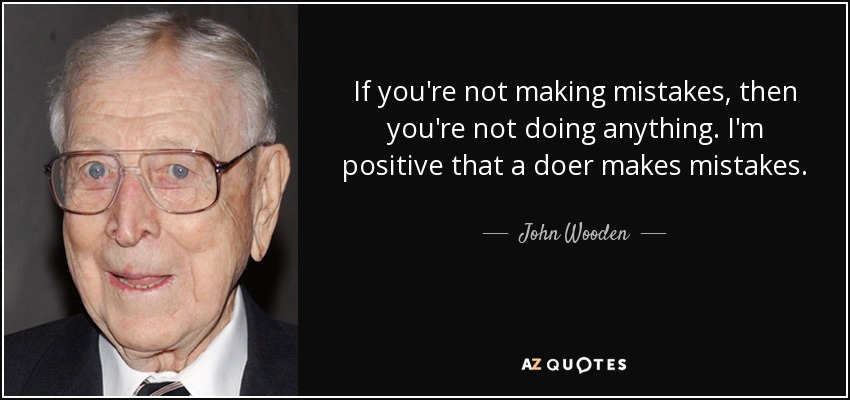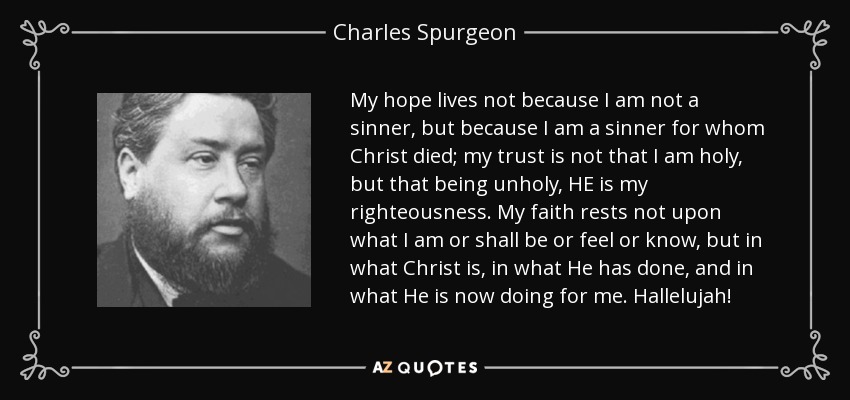Click here to return to Blog Post Intro
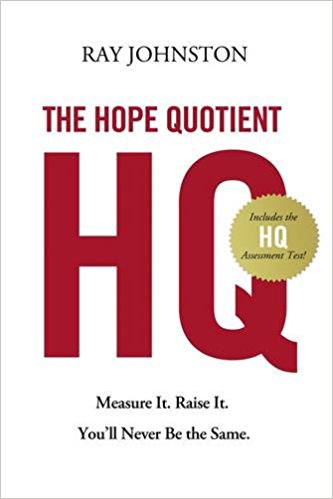
The Single Most Important Thing to Do
Getting and staying encouraged is everyone’s number one need—whether they know it or not.
Howard Hendricks gave this definition of discouragement, “Discouragement is the anesthetic the devil uses on a person just before he reaches in and carves out his heart.” When people lose hope, they lose their ability to dream for the future. Rick Warren says the “disease of discouragement” has four key characteristics: it is universal, repeating, deadly, and contagious.
Some wise person once said that we can live for forty days without food, about three days without water, about eight minutes without air—but not a single second without hope.
A leading psychologist built his career around working with deeply troubled married couples who had been damaging their relationships for decades. He explained, “I try to get 10% improvement. When couples get that 10% improvement, they get hope. And when someone gest hope, anything is possible.” Hope is so potent that you don’t need to get to 50% more hopeful, or 40%, or even 25%. Just 10% more hope is enough to launch you into a new and better orbit.
There are four things hope does that nothing else can do:
- Hope liberates. Hope releases you from your past.
- Hope motivates. Hope helps you bounce back.
- Hope initiates. Hope sets you free to dream. Momentum and vision keep your ministry future-focused. But without hope, you won’t have momentum. And without momentum, you’re in trouble.
- Hope activates. Hope is the fuel that makes the world a better place.
1 Corinthians 13:13 says, “And now these three remain: faith, hope, and love.” Christians and Christianity will never thrive without all three. However, the Christian church has spent years majoring on two and leaving hope out of the equation. Few ever talk about hope. God puts it in the list of the top three human essentials, yet for decades we have left it on the shelf.
Hope is more than just an emotion you feel; it’s a state of being you create. Hope can be learned. Hope is forward-facing confidence.
Seven Factors That Raise Your Hope Quotient
Becoming a person with hope is always a result of raising the seven hope factors.
-
Recharge Your Batteries
Refueling is one of the most important things in life. The road to a better future is never traveled on an empty tank.
Motivational speaker Gail Blanke wrote a great book a few years ago, Throw Out Fifty Things. The message was to eliminate the clutter, physical or emotional, that holds you back.
Someone once said, “If you’re burning the candle at both ends, you’re not as bright as you think you are.”
What we think determines who we will become. Your mind will think most about whatever you most expose it to. The law of exposure says that the events you attend, the materials you read, the music you hear, the images you watch, and the daydreams you engage in are shaping your mind and ultimately shaping your actions, character, and destiny.
The most important thing to your impact, leadership, and ministry is—you. What are you doing, year by year, to invest in your own growth and development? Even Jesus Christ, the perfect Son of the living God, took time to recharge His batteries. The Gospels are packed with “Jesus withdrew…” and “Jesus prayed…”
Worship is so powerful that every seven days, God says, “Here’s a prescription: take a day off and do this.” Worship focuses you on God.
John Maxwell says life transformation takes five steps:
- When you change your thinking, you change your beliefs.
- When you change your beliefs, you change your expectations.
- When you change your expectations, you change your attitude.
- When you change your attitude, you change your behavior.
- When you change your behavior, you change your life.
The big idea is—all great life change starts when you change the way you think…
-
Raise Your Expectations
You don’t get what you deserve; you get what you expect. Mark 9:23 says, “Everything is possible for him who believes.”
Here are five attitudes and actions to help you become a person who expects great things:
- Believe impossible things are possible
- Believe that God has better days ahead
- Realize the power of perspective. Often it’s not low circumstances that make us lose hope—it’s low expectations.
- Replace fear with faith. Remember young David and the fearful nation of Israel in 1 Samuel 17? The people though Goliath was too big to beat. David thought he was too big to miss. Fear is the darkroom where negatives develop.
- Replace “What If?” with “Why Not?”
-
Refocus on the Future
Peter went from a complete failure to one of the first great leaders of the Christian church through this question: what can this become?
What made Jesus so effective? What was it about Jesus that liberated people from their pasts and freed them to go on to become something they never dreamed? Jesus was not focused on what people were like. He was focused on what they could become.
Everything changes when we ask the question, “Am I able to see things not as they are right now but in terms of what they can become?”
Here are some benefits to asking, “What can this become?”:
- Passion replaces apathy and discouragement
- You experience great comebacks. Every great comeback in history began with a great vision. It’s not where you start—it’s what you become. Consider these greats from the Bible:
-
- Jonah started out running away from God but ended up influencing a whole metropolis.
- Moses did nothing significant for the first two-thirds of his life—which I find encouraging—but ended up delivering two million people from centuries of slavery.
- Thomas started out wracked by doubt but ended up taking the gospel all the way to India.
- Paul started out persecuting Christians but ended up writing the majority of the New Testament.
- Grace frees you; future vision fuels you. Johnston explains, “Right after I became a Christian, I walked into a boardroom of a vibrant church and saw a sign hanging on the way. It says, ‘Money flows best not to needy institutions, but to bold goals and exciting ideas.’”
- You are set free to dream! People fall into five categories:
- Those with no dream. Not having a dream results in frustration, boredom, and regret.
- Those with a low dream.
- Those with the wrong dream. People all around—in the church and in the community—have tremendous talent, ability, and potential, yet they give first-class allegiance to second-class causes.
- Those with a vague dream.
- Those with God’s dream. People with a God-inspired dream know where they’re headed, because the Word of God, the Spirit inside them, and the believers they trust all point them in the same direction. How do you know if the dream inside you really comes from God? Ask these questions, “Is this dream God-honoring? Will this dream change lives and influence people? Does this dream resonate with godly, visionary people?”
- Forward momentum stabilizes and energizes. Do your future a big favor. Give preference to become over is.
-
Play to Your Strengths
Discovering your God-given gifts:
- Helps you maximize your potential
- Helps you discover your purpose. We all come fully alive when we discover our gifts, put the gifts into service, and then watch as God works powerfully through them (1 Corinthians 12:4-6).
- Helps free you from insecurity and inferiority
- Helps keep you motivated and encouraged
- Is the best way to change the world
- Frees you from fear of failure
- Lowers stress and increases joy
Check out these passages to discover your God-given gifts: Romans 12:4-7; 1 Corinthians 12-14; Ephesians 4:11-13; and 1 Peter 4:8-11. Then, take your gifts, plug them into service, and let God do whatever He wants to do through them.
-
Refuse to Go It Alone
Healthy stress requires we have three elements in equal balance. Those key elements are control, challenge, and support.
- Controls: Without financial controls, schedule controls, discipline, or focus, we end up stressed and in trouble.
- Challenges are essential. Anybody who isn’t being challenged or stretched is probably deteriorating.
- Support is so crucial to the equation that experts focus stressed-out people on how to build a base of support. Getting right down to it, just ask, “Are you close to anyone?”
In Robert Putnam’s influential analysis of social relationships, Bowling Alone: The Collapse and Revival of American Community, he wrote, “The single most common finding from a half century’s research on the correlates of life satisfaction, not only in the United States but around the world, is that happiness is best predicted by the breadth and depth of one’s social connections.”
1 Samuel 23:16 says, “Jonathan, Saul’s son, rose and went to David at Horesh and strengthened his hand in God.” Do you have someone in your life who “strengthens your hand in God”?
Here are five relationships we all need:
- Vision Casters
We all need someone who will give us a vision for who we can be, far beyond anything we ever imagined.
Henrietta Mears’s most inspiring quote is, “There is no magic in small plans. When I consider my ministry, I think of the world. Anything less than that would not be worthy of Christ nor of His will for my life.”
- Soul Sharpeners
Proverbs 27:17 gives the Soul Sharpener’s job description: “As iron sharpens iron, so one man sharpens another.” A wise man once said, “The best way to grow is to be the smallest person in the room.”
- Models and Mentors
Remember my post, asking, “Who is on your Mount Rushmore of Mentors?”
- Heart Healers
Dr. Paul Tournier wrote, “It is impossible to overemphasize the immense need men have to be really listened to, to be taken seriously, to be understood…”
- Tail Kickers
Tail kickers love to tell us the truth. Oscar Wilde described it this way, “True friends stab you in the front.”
- Replace Burnout with Balance
When we are overloaded or overcommitted, we lose.
Dr. Richard Swenson would say we are out of “margin,” the title of his best-selling book.
Margin is the space between your load and your limit. Most of us are loaded far beyond our limits.
75-90% of all doctor office visits are for stress-related ailments and complaints. More than at any time in history, we are chronically rushed, habitually late, regularly exhausted, continually pressured, desperately overloaded, totally overwhelmed, and vastly overcommitted.
Ask yourself these seven questions:
- Is my pace of life out of control? (Because anything out of control is headed for a wreck)
- Am I running on empty? (Because it’s hard to fake “full”). None of us can afford to ignore the critical need to refuel. Here’s a lifetime lifestyle tip: schedule times to recharge, refresh, and refuel in advance.
- Am I dropping the right balls? (Because some balls don’t bounce back). Bryan Dyson, CEO of Coca-Cola Enterprises, spoke on keeping life balance when he said, “Imagine life as a game in which you are juggling five balls in the air. You name them—work, family, health, friends, and spirit—and you’re keeping all of these in the air. You will soon understand that work is a rubber ball. If you drop it, it will bounce back. But the other four balls—family, health, friends, and spirit—are made of glass. If you drop one of these, they will be irrevocably scuffed, marked, nicked, damaged, or even shattered. They will never be the same.”
- Have I stopped believing I’m invincible? (Because there is a God, and I’m not Him)
- When I relax, do I feel guilty? (Because rest is not a four-letter word)
- Do I understand that God makes a big deal of this? (Because this really is the fourth commandment). The least obeyed verse in the Bible is Psalm 46:10, “Be still, and know that I am God.” To “Keep the Sabbath”, these three things have to happen: physical rest; spiritual refocus; and emotional recharge. Solitude and being with people you love will recharge you.
- Am I putting first things first? (Because most kids are only in a fourth-grade Christmas play once)
-
Play Great Defense
Five of the most toxic hope killers on the planet:
- Bitterness and resentment
Hebrews 12:15 says, “Watch out that no poisonous root of bitterness grows up to trouble you, corrupting many.”
- Worry and anxiety
Warren Wiersbe, the prolific Christian author and leader, declared, “Most Christians are being crucified on a cross between two thieves: yesterday’s regrets and tomorrow’s worries.” Dr. Alexis Carrel, winner of the Nobel Peace Prize in medicine, said, “People who don’t know how to fight worry die young!” Corrie Ten Boom reminded us, “Worry does not empty tomorrow of its sorrow, it empties today of its strength.” George Muller once said, “The beginning of anxiety is the end of faith. The beginning of true faith is the end of anxiety.” Anxiety won’t just weaken your life; it will shorten it. Let it go.
- Looking back and comparing
General Colin Powell, former United States secretary of state, had a reporter ask him once if he had any regrets. General Powell looked at the reporter and gave a brilliant answer. He said, “What good are regrets? Regrets slow you down. Regrets cause you to fail to pay attention to the future. So I never log, count, or inventory my regrets. I move on.”
- Guilt
The Bible is clear about this—the minute you place your faith in Christ, you are forgiven and freed from your past.
- Past Failures
The team that makes the most mistakes is usually the one that wins. John Wooden, famous UCLA basketball coach with the most men’s championship banners in history, never let failure keep him from reaching toward success. “
Unleashing a Culture of Hope
Unleashing Hope in Your Marriage
Hope is the greatest antidote against the toxic forces that are destroying American homes. How do you build a marriage to last a lifetime? Here are five ways:
- Give up unrealistic expectations.
The reality is that marriage is composed of two very flawed, very imperfect individuals. It is crazy to think that two imperfect individuals can form one flawless, problem-free relationship.
- Give up Hollywood’s myth of marriage.
Paul Tournier wrote in To Understand Each Other, “So called ‘emotional incompatibility’ is a myth invented by jurists short of arguments in order to plead for divorce. It is likewise a common excuse people use in order to hide their own failings.” Paul Popenoe wrote in Marriage Is What You Make It, “Incompatibility—it would be hard to find a word that is so often used so unscientifically. Almost any two people are compatible if they try to be so.” Robert Fulghum wrote in his brilliant bestseller It Was on Fire When I Lay Down on It, “The grass is not, in fact, always greener on the other side of the fence… Fences have nothing to do with it. The grass is greenest where it is watered.” Hope-based couples shift from comparing to cultivating.
- Give up “fixing” the blame and start solving the problem.
- Give up focusing on yourself.
Taken seriously, a marriage can last a lifetime filled with fun, faith, and faithfulness.
- Play together. If you play together, you will make your marriage fun.
- Pray together. If you pray together, you will build your faith.
- Stay together. Make a lasting commitment to each other. If you stay together, you will create faithfulness.
- Refuse to give up.
Unleashing Hope in Your Kids
Josh McDowell declared the number one fear of American parents today is that they will not be able to pass on their values, morals, or faith to their kids.
The single most profound thing ever penned on the subject of parenting is, “Children are a gift of the Lord… Like arrows in the hand of a warrior, so are the children of one’s youth” (Psalm 127:3-4). You do three things with an arrow:
- Direction: You pick up an arrow and aim it.
- Motivation: You pull back the string.
- Release: You let it go.
As kids grow older, we have to become much better at reaching the heart rather than filling the head. One of the best ways to reach the heart is to provide hope, to help our kids see what they can become, rather than dwell on what they are.
Stay future-focused. Hope is the greatest gift that any leader gives to his people. What would happen in the lives of our kids if we started relating to them consistently on the basis of future hope?
Expose your kids to significant events and experiences. What develops unselfishness in today’s teenagers? What creates a heart of compassion when their culture screams, “It’s all about you”? All of that develops when we expose kids to experiences that have enough octane to captivate their hearts and minds.
A Young Life leader said, “Any kid will do great, if you give them two things: a warm welcome and an adult who’s crazy about them.”
Unleashing Hope in Your Career
Five ways to raise hope where you are now:
- Arrive with energy. Johnston explains, “When I look for new employees, I look for energy.”
- Live and lead with passion.
- Stay positive under pressure. Chuck Norris said, “A lot of times people look at the negative side of what they feel they can’t do. I always look at the positive side of what I can do.”
- Be a peacemaker, not a troublemaker. Relational tension is going to happen. Just don’t be the glass-breaker. Be the relationship-maker.
- Add value.
If you want to be at your best day after day, the following four questions are critical:
- What are my unique factors? What are you really great at? What can you be the best in the world at?
- When am I most fulfilled?
- When am I happiest? What fires you up? What do you absolutely love to do?
- What is best for my family? There is little joy in the lives of people who have sacrificed their families in order to pursue some career goal.
Unleashing Hope in Your Church
When the church is focused on Christ and fueled by hope, it is the most powerful force in the world. Here are five characteristics that marked hope-filled early Christians:
- Hope-fueled Churches believe God has better days ahead.
- Hope-fueled Churches take God-honoring risks. Our churches struggle today because we’ve developed a watered-down version of the Christian faith that looks nothing like the vibrant, life-changing, world-impacting, risk-taking faith of the early church.
- Hope-fueled Churches unleash compassion. To be blunt about it, you could close the doors of the average church in America and the community would never miss it, because they have so little connection to the community. The early church’s pattern for impacting the community could not have been clearer. They started with good deeds. Selling their possessions and goods, they gave to anyone who had needs.
- Hope-fueled Churches are known by what they’re for, not what they’re against. Hope-based Christians realize that revival comes not when people become more religious but when religious people become more like Christ.
- Hope-fueled Churches believe that resurrection works best in cemeteries. Today, a billion people gather to celebrate these words every weekend. He is risen separates Jesus from every other religion in history.
Unleashing Hope in Your World
It’s been said that Americans buy things we don’t need with money we don’t have to impress people we don’t like.
The smartest thing you can do with your life is to make things happen that wouldn’t have existed without you.
Mike Yaconelli said, “Quit feeling guilty about not doing everything. But do something… because something is better than nothing!”
A Forbes magazine editor asked, “What’s the most important thing you have learned in the last ten years?” Johnston responded, “I’ve learned a lot, but the most important life leadership lesson I’ve learned in the past decade is that the solution to everything is the right person. In a company, on a team, for a church, when the right person arrives and is in charge, everything goes well. And when the wrong person arrives, things do not go well… In the Bible, when the nation has the right king, the people thrive. When they have the wrong leader, it declines. The solution to everything is to have the right person.”


